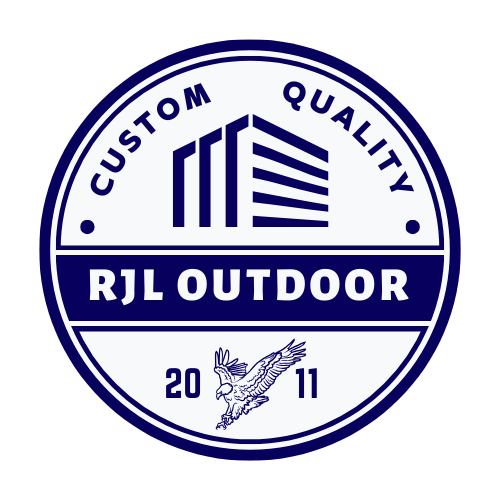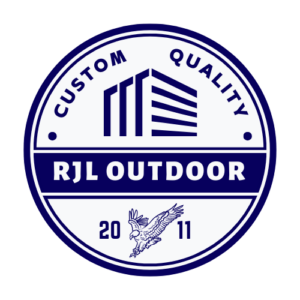Howdy!:
When it comes to safeguarding your Dallas-Fort Worth home with both elegance and resilience, few options rival the timeless allure of custom wrought iron gates. But the very elements that make DFW such a vibrant place to live – those scorching summers and unpredictable winters – can take a toll on even the sturdiest metals. Fear not, for this comprehensive guide delves into the intricate dance between custom wrought iron gates and the DFW weather, equipping you with the knowledge to make informed decisions that stand the test of time (and Texas heat!).
Custom Wrought Iron Gates: An Overview
Before we dive into the nitty-gritty of DFW weather, let’s lay a solid foundation by understanding what makes custom wrought iron gates so special. Unlike mass-produced counterparts, these gates are meticulously crafted by skilled artisans who pour their heart and soul into each twist, turn, and flourish.
The Allure of Ironwork
Iron, a material both robust and malleable, has been a cornerstone of construction and artistry for centuries. Its inherent strength promises longevity, while its ability to be molded into intricate designs unlocks a world of aesthetic possibilities. This unique combination makes wrought iron gates a popular choice for homeowners seeking to elevate their curb appeal while bolstering security.
The Benefits of Going Custom
While pre-fabricated gates have their place, the true magic happens when you opt for customization. Here’s why:
- Uniquely Yours: A custom gate isn’t just a gate; it’s an extension of your home’s personality. Work closely with artisans to design a piece that reflects your style, from classic elegance to modern minimalism.
- A Perfect Fit: Forget about shoehorning a standard-sized gate into your entryway. Custom gates are meticulously measured and crafted to fit your space perfectly, ensuring seamless integration.
- Uncompromising Quality: Custom gates are often crafted using higher-grade materials and superior welding techniques, resulting in a product built to withstand the test of time.
Navigating DFW’s Weather Extremes
Ah, Texas weather – a force of nature that keeps us on our toes! From sweltering summers that could melt asphalt to surprise winter storms that blanket everything in ice, DFW’s climate is anything but boring. While this unpredictability adds a certain charm to life in North Texas, it also presents unique challenges for outdoor structures, especially those crafted from metal.
The Heat is On: Summer’s Impact on Wrought Iron
Let’s be honest, DFW summers are not for the faint of heart. With temperatures regularly soaring into the triple digits, the sun beats down relentlessly, testing the mettle of even the toughest materials.
- Expansion and Contraction: Like all metals, iron expands when heated and contracts when cooled. While this natural process isn’t usually noticeable in everyday objects, the extreme temperature fluctuations in DFW can cause significant movement in large metal structures like gates.
- Fading and Discoloration: The intense UV radiation from the Texas sun can cause paint and finishes to fade, crack, and peel over time, diminishing the visual appeal of your gate.
- Increased Risk of Rust: High humidity, a hallmark of DFW summers, creates the perfect environment for rust to thrive. If your gate’s protective coatings are compromised, rust can quickly set in, weakening the metal and detracting from its beauty.
Winter’s Bite: The Challenges of Cold and Ice
While DFW winters are generally milder than those up north, we’re no strangers to occasional cold snaps and icy conditions.
- Brittle Metal: Extreme cold can make metals more brittle, increasing their susceptibility to cracking or breaking, especially under stress.
- Moisture and Rust: Freezing rain, sleet, and snow introduce moisture to the equation, further elevating the risk of rust formation on unprotected or poorly maintained ironwork.
- Damage from Ice Expansion: When water freezes into ice, it expands. If water seeps into cracks or crevices in your gate and then freezes, the expanding ice can put pressure on the metal, potentially causing damage.
Protecting Your Investment: Weatherproofing Strategies
Now that we’ve explored the challenges, let’s shift our focus to solutions. Here’s how to weatherproof your custom wrought iron gate, ensuring its longevity and preserving its stunning appearance for years to come:
1. Choosing the Right Materials
The foundation of a weather-resistant gate starts with selecting the right type of iron:
- Wrought Iron vs. Mild Steel: While often used interchangeably, wrought iron and mild steel have distinct properties. Wrought iron, with its lower carbon content, is naturally more resistant to rust and corrosion than mild steel. If your budget allows, opting for true wrought iron is a wise investment in DFW’s climate.
- Gauge and Thickness: The gauge of the iron refers to its thickness. Thicker gauges offer greater strength and durability, making them better suited for withstanding extreme weather conditions.
- High-Quality Welding: The strength of your gate lies not just in the materials but also in the craftsmanship. Look for welders who prioritize quality and use techniques that minimize weak points where rust can take hold.
2. The Power of Protective Coatings
Think of protective coatings as a suit of armor for your gate, shielding it from the elements.
- Galvanization: This process involves coating the iron with a layer of zinc, which acts as a sacrificial barrier, corroding before the iron itself. Galvanized gates offer excellent rust resistance, making them a popular choice for DFW.
- Powder Coating: For a durable and aesthetically pleasing finish, powder coating is an excellent option. This process involves applying a dry powder to the gate, which is then heated and cured to create a hard, even coating that’s resistant to chips, scratches, and fading.
- Paint: While not as durable as galvanization or powder coating, paint still provides a layer of protection against the elements. Opt for exterior-grade paints specifically formulated to withstand UV exposure and moisture.
3. Regular Maintenance is Key
Even the most robust gates require a bit of TLC to stay in top shape.
- Cleaning Routine: Regularly cleaning your gate removes dirt, grime, and pollutants that can trap moisture and accelerate corrosion. Use a mild detergent, water, and a soft-bristled brush, avoiding abrasive cleaners that can scratch the surface.
- Inspection for Damage: Periodically inspect your gate for signs of rust, chipping paint, or any other damage. Addressing issues promptly prevents small problems from escalating into major headaches.
- Touch-Ups and Re-Coatings: If you notice paint fading or chipping, touch up the affected areas to maintain the gate’s protective barrier. Depending on the type of coating and environmental conditions, consider re-coating the entire gate every few years to ensure optimal protection.
DFW Weather-Specific Considerations
While the above tips provide a solid foundation, DFW’s unique climate calls for some additional considerations.
- Sun Protection: To combat the intense Texas sun, consider incorporating design elements that provide shade for portions of the gate. Latticework, strategically placed scrolls, or even climbing vines can help reduce direct sunlight exposure, minimizing fading and heat absorption.
- Drainage is Crucial: Ensure your gate and its surrounding area are designed to facilitate proper drainage. Standing water is an open invitation to rust, so make sure water can flow away freely, preventing pooling at the base of the gate.
- Professional Installation: Proper installation is paramount, especially in DFW’s expansive clay soil, which is known for its tendency to expand and contract with moisture changes. Experienced installers understand how to set posts correctly, ensuring stability and minimizing the risk of shifting or damage due to soil movement.
Beyond the Gate: Enhancing Weather Resistance
While the gate itself is the star of the show, don’t overlook the supporting cast – the hardware and surrounding elements that play a crucial role in its longevity.
- Hardware Choices: Opt for hinges, latches, and other hardware made from rust-resistant materials like stainless steel or galvanized iron.
- Automated Gate Systems: Consider the impact of DFW weather on automated gate systems. Choose motors and electrical components designed for outdoor use and ensure they are properly shielded from the elements.
- Landscaping Considerations: The landscaping around your gate can influence its exposure to the elements. Avoid planting trees or shrubs too close to the gate, as their roots can disrupt the soil and their branches can rub against the metal, causing damage over time.
The Bottom Line: Investing in Enduring Beauty
A custom wrought iron gate is more than just an entryway; it’s an investment in your home’s curb appeal, security, and lasting value. By understanding the nuances of DFW’s weather and taking proactive steps to weatherproof your gate, you can enjoy its beauty and functionality for generations to come. Remember, regular maintenance is key – a little TLC goes a long way in preserving the splendor of this timeless craft.
RJL : So there you have it – a deep dive into the world of custom wrought iron gates in the heart of DFW. Remember, by choosing quality materials, prioritizing protective coatings, and staying on top of maintenance, you can ensure that your gate not only survives but thrives amidst the Texas elements.





